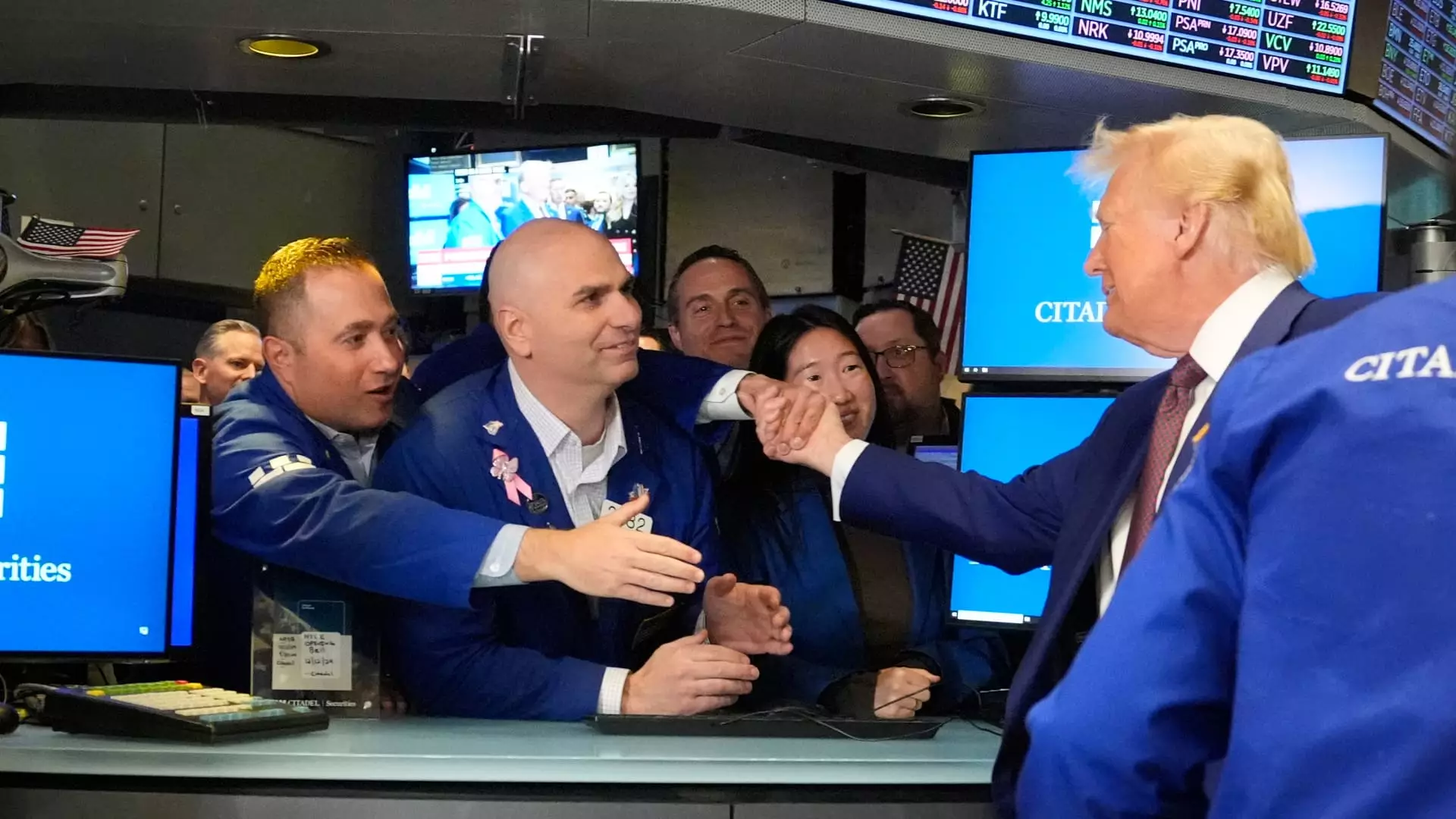As President-elect Donald Trump prepares to assume office, his engagement with the financial markets has sparked various reactions among investors. Following the ceremonial opening of the New York Stock Exchange with the ringing of its bell, Trump presented a cautious, yet optimistic perspective on the stock market. Rather than directly encouraging investors to dive into stock purchases, he advised caution against potential market volatility, stating, “I don’t want to get into a situation where they do and we have a dip or something because that can always happen.” This statement raises an important question about the balance between optimism and prudence in high-stakes investing during transitional political periods.
Trump’s previous term saw a significant boost in the stock market, with the S&P 500 climbing nearly 68% during his administration. This remarkable growth drew much of its support from the tax cuts enacted during his presidency, coupled with the Federal Reserve’s policy of maintaining low interest rates to stimulate economic activity. As such, historical performance has become a key point of reference for evaluating Trump’s potential impact on the stock market moving forward. Investors who experienced the highs of the previous term might be holding their breath in anticipation of a repeat performance—or bracing for a shift in dynamics.
One of the cornerstones of Trump’s economic strategy appears to be tax reform. During his remarks at the exchange, he hinted at further tax reductions, stating, “We’re gonna do things that haven’t really been done before. We’re gonna cut taxes still further.” This ongoing emphasis on tax policy signifies an attempt not just to stimulate corporate investment but also to create job opportunities at home. His assertion that building products in the U.S. could yield a corporate tax rate reduction from 21% to 15% suggests a tailored approach aimed at incentivizing domestic manufacturing and business expansion.
Voices from Wall Street
The presence of prominent Wall Street figures, such as Goldman Sachs CEO David Solomon and hedge fund manager Bill Ackman, during Trump’s bell-ringing ceremony reflects the intrinsic link between political leadership and market sentiment. Ackman articulated a prevalent sentiment among financial leaders, asserting that robust business performance leads to higher stock valuations, increased wages, and greater job growth. This synergy highlights a wider narrative that successful corporate strategies benefit not just business owners but the economy as a whole—an observation that reflects a fundamental principle of free-market economics.
Looking Ahead: A Mixed Bag of Optimism
While Trump remained noncommittal in urging immediate stock purchases, his overall outlook exudes a sense of bullishness. He expressed belief in a uniquely transformative trajectory for the United States, telling reporters, “I think long term this is going to be a country like no other.” This sentiment encapsulates the broader expectations that accompany a new presidency, inherently tied to the potential for policy shifts affecting not only the economy but also the morale of investors and consumers alike. As Trump sets forth into this new chapter, the intertwined fate of the stock market and America’s economic future continues to provide fertile ground for both speculation and hope among stakeholders in the financial landscape.

